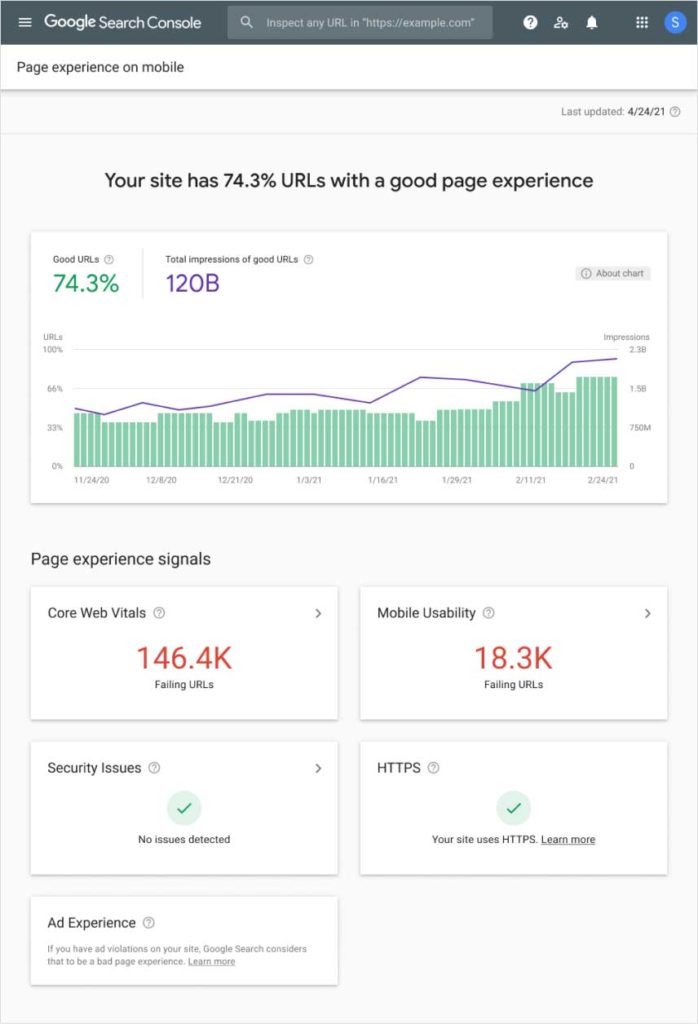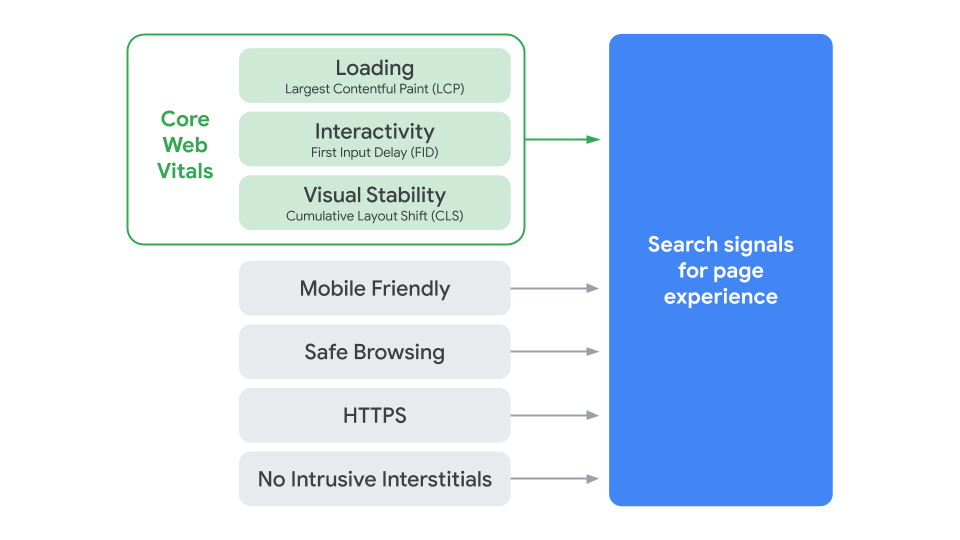Google Page Experience Update: Everything You Need to Know
Share this Article
Although Google frequently updates its algorithm, we know from experience that many of these updates are powerful enough to disrupt a site’s search rankings. But while many of these updates happen with no advance warning, Google Page Experience update has been on our radar for months now. We finally have an idea of when the update will launch and what to expect — so now, it’s time to prepare. Here’s the vital information you need to get your site ready for this update.
Google Announces Delay in Launch
Originally, the Page Experience update was supposed to launch in May 2021. But by late April, we received official word from Google that there’d be a slight delay. The rollout is now slated to begin in mid-June of this year, with the full effects of this update taking place by August 2021.
Already, we’ve had more advanced notice for this update than others in the past. But with this extra time, Google hopes that businesses will have more time to make necessary changes. A gradual approach may also alleviate any significant ranking upsets. Now that we have another month before the update will launch, we can prioritize site adjustments without fear.
Understanding Google’s Core Web Vitals
Google updates its algorithm in order to provide more relevant search results for web users. Not only does Google want to reward sites that offer valuable information, but those sites should also be easy to navigate and provide an overall positive experience for visitors. Google has stated that once this algorithm update takes effect, page experience could make the difference when determining a ranking for two similar sites that offer equal content value. However, page experience won’t necessarily make or break your ability to rank. That’s why you’ll want to continue working with an SEO agency to create high-quality content to support your marketing strategy.
Still, you’ll want to familiarize yourself with the most important factors involved in this update. Some of these considerations, like mobile friendliness and site security, have played a role in determining website rankings for a while. But others, like the Core Web Vitals, may be completely new to you. Here’s a brief overview of the Core Web Vitals and how they might impact the changes you make to your site.
- Largest Contentful Paint (LCP): Slow load speeds can disrupt the user experience. LCP measures the amount of time it takes for the biggest piece of content (in many cases, a visual of some kind) on a page to load completely. This metric is just one way to measure loading speed and performance. A page’s LCP rate should be less than 2.5 seconds for the best results.
- First Input Delay (FID): FID measures the amount of time it takes for interactive elements on a page to provide their intended characteristics. If a page has clickable buttons that aren’t usable right away, this speaks to a first input delay. An FID below 100 milliseconds is recommended.
- Cumulative Layout Shift (CLS): Layout shifts are unexpected jumps in how a page is displayed during the loading process. This can be jarring and frustrating to a user. CLS refers to a score that measures the number of layout shifts in a page’s entire lifespan. Your page’s CLS score should be lower than 0.1 with this update.
Quick Tips to Prepare Your Website
With this extra preparation time and your enhanced knowledge of what Google wants to see, you can start getting your website ready. Here are just a few quick tips that can get you started.
- Ensure your site is truly mobile-friendly and accessible across all devices
- Test your page load speed and reduce delays by compressing images
- Find and fix any existing navigation issues or broken page errors
- Boost your site security (and obtain HTTPS certification, if applicable)
- Eliminate intrusive interstitials (pop-ups that impede site interaction and navigation)
- Use the Google Search Console Page Experience report to identify performance issues

You may assume you have all the time in the world to make these changes, but June will be here faster than you’d think. Start preparing your website now so that you’ll be ready by the time Google launches this algorithm update. That way, you won’t have to worry about adverse ranking changes or scrambling at the last minute. Instead, you’ll be set up for success.

